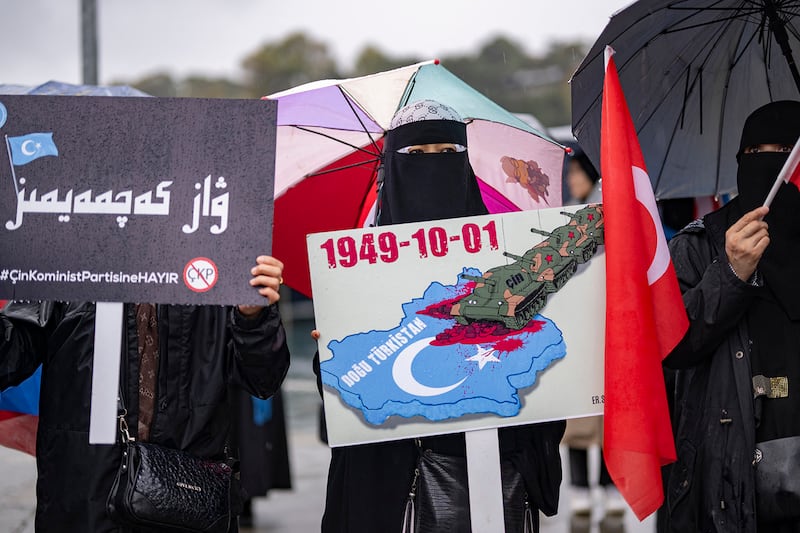Beijing has slammed as hypocritical a statement released by 15 Western countries that calls on Chinese authorities to release arbitrarily detained Uyghur and Tibetan prisoners and allow human rights observers to access the regions in which they live.
The 15 countries delivered the statement to the U.N. Human Rights Committee during a session in New York on Tuesday.
Speaking at a regular press conference on Wednesday, Foreign Ministry spokesperson Lin Jian accused the West of “hypocrisy on human rights” and “ideological bias.”
But he saved his most scathing criticism for Australia, whose U.N. ambassador delivered the statement.
“Australia, long plagued by systemic racism and hate crimes, has severely violated the rights of refugees and immigrants, and left indigenous people with vulnerable living conditions,” Lin said, noting Australian soldiers “committed abhorrent crimes in Afghanistan.”
The spokesperson called for the West to “to face up to and address their own severe human rights problems” before criticizing China.
“The U.S. and some Western countries have a bad track record in racism, gun violence, judicial injustice, wealth gap, abuse of force, unilateral sanction, and other issues,” he added. “These Western countries turn a blind eye to their severe human rights issues at home but in the meantime point their fingers at other countries.”

Lin said that more than 100 other countries, led by Pakistan, had themselves released statements on Tuesday supporting China’s stance and opposing the “politicization” of human rights and the West’s “double standards.”
Calls for more action
Rights groups and Uyghur and Tibetan advocates, though, said the underlying message of Tuesday’s statement should be heeded by China, which restricts access to Tibet and the Uyghur-majority Xinjiang.
The U.S. government says China is committing “genocide” against the mostly Muslim Uyghurs in Xinjiang, including through torture, internment and sterilization, while repeated U.N. reports have found China prevents Tibetans from exercising religious, cultural and linguistic freedoms.
“For years, China has severely restricted the access of independent international observers to Tibet,” said Ry Atkinson, a strategic campaigner at Amnesty International. “If there is truly nothing to hide, China must allow Australian government officials and other international actors unrestricted access to assess the human rights situation on the ground.”
Atkinson said the West should not stop with just statements and should continue to pressure China over its treatment of the minorities.
“Australia and other countries should not be deterred by the Chinese government’s transparent attempt to bully them into silence,” the campaigner said. “No state, no matter how influential, should be shielded from accountability for human rights violations.”
Gloria Montgomery, a coordinator with the Tibet Advocacy Coalition, said the focus from the Western countries was a welcome development.
“For years, U.N. treaty bodies and experts, along with civil society, have documented these violations, making them impossible to ignore,” Montgomery said. “U.N. member states are finally awakening to the urgent warnings about the crisis unfolding in Tibet.”
Others noted that the request to China was not complex.
“U.N. member states are asking for something quite simple from the Chinese government — show us what you’ve been doing to address crimes against humanity,” said Peter Irwin, associate director for research and advocacy at the Washington-based Uyghur Human Rights Project.
Edited by Alex Willemyns and Malcolm Foster.
